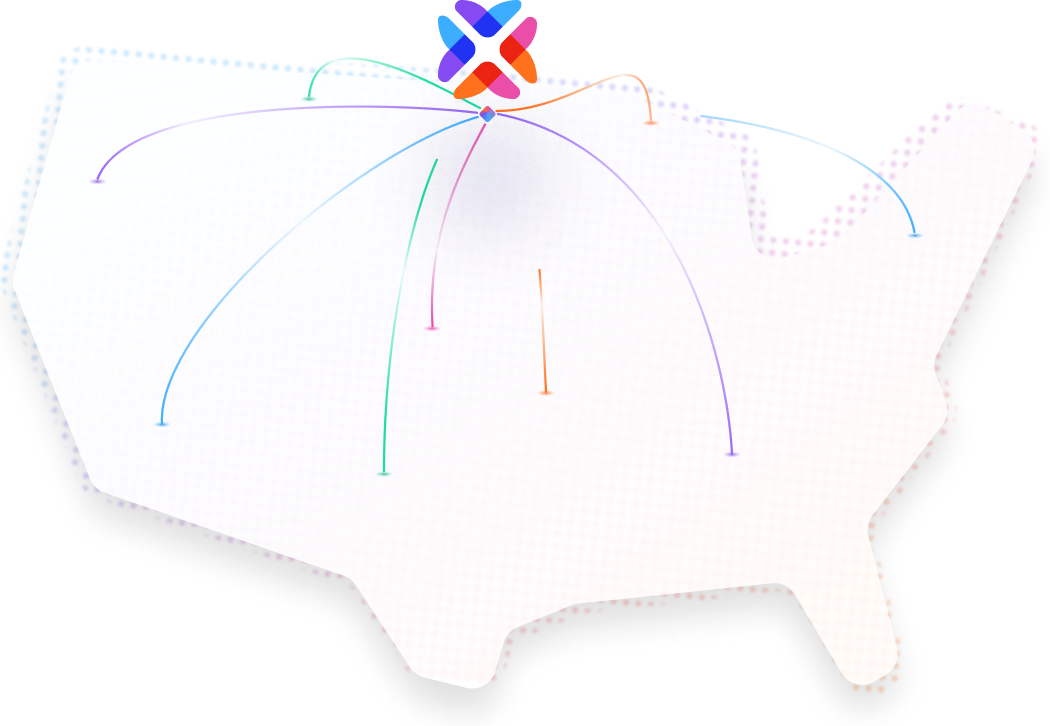Building Permit
Data, Engineered for
AI & ML
Battle-tested by production systems. Optimized so data teams build models, not clean data. The only permit data provider that uses its own data to build AI models every single day
Permit data overview
Coverage: Kukun’s coverage of clean and functional permits is unsurpassed by any other company

Clean, functional permits
Parcels
Of major metro parcels are covered
Municipal
sources
Recency: Kukun has direct digital feeds daily from most large cities in the USA
De-duped: Start with less clutter for better analytics
Cleaned with standardized taxonomies: The foundation of analytics
Accurate address matching: More confidence in the results
Why Data Scientists Choose Kukun
Battle-Tested by Production Systems
Kukun is its own biggest customer. Kukun uses its permit data every day to build production-grade AVMs, contractor scoring systems, and ROI calculators. This provides a continuous feedback loop that ensures the data quality is validated by live systems daily.
100% ML-Ready from Day One
This isn't a raw data dump. You get structured taxonomies across all jurisdictions, consistent schemas, and clean formatting. No preprocessing required.
Result: Data scientists build models, not data-cleaning pipelines.
How Kukun Compares
FEATURE |  | TRADITIONAL PROVIDERS |
|---|---|---|
ML-ready data structure | ||
Battle-tested by production AI | ||
Enhanced intelligence (40% hidden activity) | Partial | |
Standardized taxonomy nationwide | Partial | |
Continuous improvement feedback loop | ||
Cost-effective pricing | Lower | Higher |
See the Complete Picture with Enhanced
Intelligence
Kukun's system discovers 40% more residential activity that competitors miss because it's hidden in generic permit categories.
Here's an example: A $50,000 kitchen remodel is rarely filed as a "kitchen" permit. It's filed as a combination of separate "electrical" and "plumbing" permits.
Proprietary analytics identify this. By analyzing permit descriptions, work values, and contractor specialties, the system identifies the true construction activity. This means models are trained on the complete picture, not just the obvious data.
Perfect For Your AI Use Case
With positive address matching, any or all of the following can be bundled
Financial Services
Property valuation models (AVMs)
Risk assessment algorithms
Loan origination decisioning
Real Estate & PropTech
Investment opportunity identification
Market trend forecasting
Property condition scoring
Insurance
Property risk modeling
Claims prediction systems
Underwriting automation
Replacement cost estimation
Construction & Home Services
Lead generation & targeting
Market demand forecasting
Contractor performance analysis

What Customers Say
"We evaluated three permit data providers. Kukun was the only one whose data actually worked in our ML pipeline without extensive preprocessing.The fact that they use it themselves for their own AI products gave us confidence it would work for ours."
— VP of Data Science, Major US Bank
"The enhanced intelligence that discovers hidden renovation activity was a game-changer for our targeting.We're seeing 40% more qualified leadsthan with our previous data provider."
— Director of Analytics, InsurTech Company
Frequently Asked Questions
Ready to See the Difference?
Compare Kukun permit data against any dataset currently in use. Kukun wins almost all comparative reviews.


